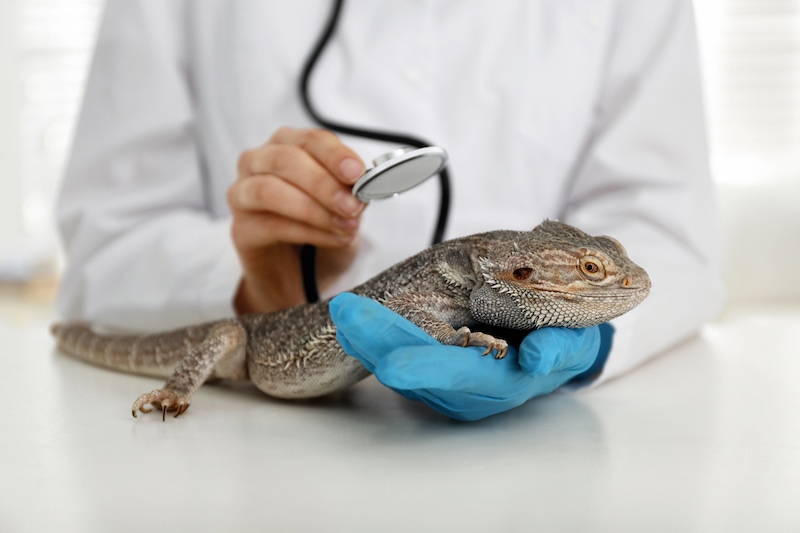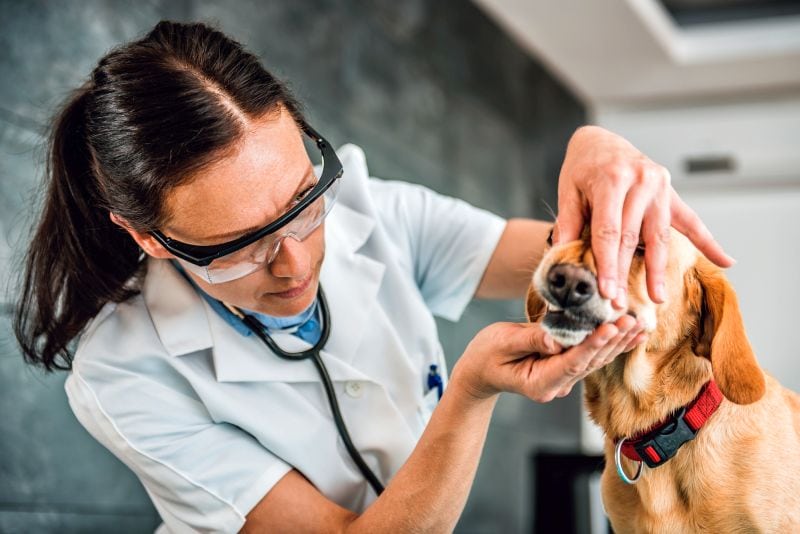In the shadowy world of big money and corporate interests, a sinister trend is taking over the landscape of veterinary medicine.
Private equity firms, with their insatiable appetite for profits, have set their sights on a new target — your friendly neighborhood vet clinic.
As they seep into the industry, acquiring practices at an alarming rate, the much sought-after bond between pet owners and their trusted veterinarians is under siege.
Are we on the brink of a catastrophic transformation in pet healthcare, where compassionate care is sacrificed at the altar of corporate greed?
We will pull back the curtain on this disturbing phenomenon, revealing the dark truth behind the motives of these financial titans, and why pet owners everywhere should be deeply troubled by their relentless advance.
Brace yourselves, as we venture into the murky depths of a veterinary industry in peril.
What are Private Equity Firms, Anyway??
Private equity firms (PEFs) are organizations that pool money from various groups and individuals.
Some of the most common contributors to PEFs include insurance companies, university endowments, and high-net-worth individuals. However, the specifics vary from one PEF to the next.
The firms then use these funds to acquire, invest in, or finance private businesses. Of course, they don’t do this out of the goodness of their hearts; they do it to generate a profit.
In fact, that’s their primary goal – private equity firms’ sole purpose is to make money for their investors.

This is generally done by purchasing a business (or stock shares in a business) and then attempting to increase the business’s value.
A business’s value is often increased by “trimming the fat” (think lay-offs, closing unprofitable departments, or merging practices) and improving its efficiency, and then selling the business for more than the initial investment.
The firm then passes this profit on to the investors.
Why are Private Equity Firms Buying Up Vet Clinics?
PEFs typically seek to invest in companies with growth potential, looking to improve their operations, expand market share, or increase profitability.
And by that logic, vet clinics are an obvious target.
But there are many specific reasons why vet clinics are looking like a tasty treat for private equity forms. Let’s jump into some of the biggest and most obvious reasons:
Shifting Perception of Pets and Our Relationship with Them
There’s no denying that the way we view our pets today is quite different than a couple of decades ago.
There has been a tremendous shift in our cultural understanding of animals, with pets today being seen much more akin to family members than mere household animals.

As a result, owners are spending much more money on their pets’ care and making sure they receive the best possible treatment.
The days where a farmer would put down his dog because he required surgery are mostly behind us, and it’s not unusual for pet owners to even take out loans in order to pay for their furry family members’ costly medical care.
In fact, the American Pet Products Association reported that Americans spent $34.3 billion on vet care in 2021, making it a lucrative investment opportunity for investors.
Americans spent $34.3 billion on vet care in 2021, making it a lucrative investment opportunity for investors.
Well, unsurprisingly, investors noticed — and acted.
Private equity firms have been increasingly buying up more and more veterinary clinics in recent years in order to capitalize on our increased devotion to our pets (and our willingness to empty our wallets for them).
The Veterinary Industry Is Very Fragmented
Unlike some other fields that are dominated by a handful of behemoths, the veterinary industry is made up of many small, independent practices.
This presents an opportunity for PEFs to consolidate multiple clinics under a single management structure.
Consolidation leads to better negotiating power with suppliers, the opportunity to order in bulk for better discounts, streamlined administrative operations, and better marketing options.
Of course, this isn’t necessarily great for the average dog owner – consolidation also means less competition and fewer options for the consumer.
Veterinarians Are Enjoying New Revenue Streams
The pet care market has experienced consistent growth over the past few years, driven by factors such as an increased focus on preventative care, training, and providing a high quality of life for pets.
This – coupled with the chance to tap into new revenue streams such as telemedicine and pet insurance – makes vet clinics an attractive investment.
New Veterinary Tech Has Become Available
Advancements in veterinary medicine, such as diagnostic imaging, minimally invasive surgeries, and innovative treatments, have led to improved patient outcomes. This, in turn, has sparked an increased demand for specialized veterinary services.

Owners are more likely to fork out big bucks for expensive procedures if their pup has a good chance at a positive outcome.
PEFs can invest in these advanced technologies and procedures, further enhancing the appeal of the clinics they acquire.
Clinic Owners Aren’t Always Business-Savvy
Many veterinary clinics are owned and managed by veterinarians who may lack formal business training. This isn’t really surprising: Veterinarians typically enter the field based on a love of animals rather than money.
But this provides private equity firms with a very attractive opportunity.
Unlike vets, PEFs are created solely to turn a profit and often staffed by polished business professionals. This allows them to bring in experienced management teams to improve operational efficiency and drive growth.
Many Old-School Veterinarians Are Nearing Retirement

In addition to everything else, many vets are nearing retirement. And this creates a powerful incentive to sell their practices. This, in turn, has created more opportunities for investors to purchase vet clinics.
A shortage of veterinarians is driving prices up and VPMs (Veterinary Practice Management companies) are focusing on same-store growth and operational improvements.
The Veterinary Industry Is Stable & Recession Proof
Private equity firms are increasingly attracted to veterinary clinics because they are seen as stable, recession-proof investments with low risk and decent returns.
The demand for veterinary services tends to be relatively stable, even during economic downturns. Since people are increasingly treating their pets as family members, they’re more likely to spend on their pets’ healthcare needs – regardless of the broader economic climate.
Investors have noticed that the pandemic created an increased demand for veterinary services, leading to higher profitability and more interest from potential buyers.
Vet Clinics Are Cash Based
Vet clinics are an especially juicy-looking cash cow for investors because vet clinics are cash-based businesses where pet owners pay upfront. This makes vet clinics especially attractive from a cash-flow point of view.
This contrasts sharply with human healthcare, where the government or insurance companies usually foot the bill. This requires business owners to jump through hoops with reimbursements and insurance billing to get their money.
A significant number of notable acquisition deals have taken place since 2014 with veterinary practice valuations ranging from 13x to 18x EBITDA (Earnings Before Interest, Taxes, Depreciation, and Amortization – which basically just measures a company’s financial health and ability to generate money.).
Private equity groups, 1031 exchange buyers (essentially a type of real estate investor), and vets looking for retirement investments have all sought out ownership of veterinary hospitals and clinics over the last five years due to their stability.
It’s not just the vet clinics themselves PEFs are buying up — they’re grabbing vet clinic real estate too.
What Does This All Mean for Pet Owners? Is the PEF Acquisition of Vet Clinics a Good Thing?
Certainly there is an opportunity for some benefits when PEFs purchase vet clinics, but there is a lot to be concerned about as well.
The biggest risk? Well, a PEFs goal is to generate revenue for investors, above all else.
This means that private equity forms are more likely to focus on short-term profits over long-term patient care. This is often achieved through things like staff cuts and – in some cases – pushing unnecessary procedures on patients.
The Future of Private Equity Firms and Independent Vet Practices
It’s important to get a scale of just how big this vet clinic acquisition operation is getting.
In 2017, VCA (Veterinary Centers of America) – which owns over 1,000 vet clinics in North America – was acquired by Mars Inc. for over 9 billion dollars.
Yup, that’s the very same Mars Inc. that’s owned by America’s third-richest family. M&M’s and Twix aren’t their only claim to fame – they’re also one of the biggest dog food manufacturers in the U.S., with Pedigree, Nom Nom, and Eukanuba falling under their corporate umbrella.
And now, they also own VCA vet clinics.
Mars Inc. is now considered the biggest buyer in the veterinary industry. In addition to their VCA acquisition, they also have taken ownership of Banfield Blue Pearl Veterinary Partners, and even smaller vet groups in Britain, Europe, Brazil, and China.
To get an idea of just how many vet clinics are being purchased and consolidated, consider that:
- Shore Capital Partners is a private equity firm who has purchased over 660 clinics nationwide through its two portfolio companies, Southern Veterinary Partners and Mission Veterinary Partners. (Source)
- VIP Pet Care, owned by PetIQ, has acquired 300 new vet clinics since January 2022, and now owns more than 4,000 locations in total.
- VetCor (a private equity firm backed by Harvest Partners) has acquired more than 209 new clinics since January 2022, and has more than 900 clinics on their books in total.
- AmeriVet, owned by AEA Investors LP and a wholly owned subsidiary of the Abu Dhabi Investment Authority has acquired 53 new clinics since January 2022. In total, they now own more than 200 veterinary practices across 35 states.
It’s Already Happened in Human Health Care: What PEFs Are Doing to the Healthcare Industry
This hungry gobbling-up of vet clinics is troubling.
And if we want to get an idea of what to expect following these acquisitions, all we need to do is look at the human health care industry.
In the last decade, private equity firms have purchased all kinds of medical-related businesses, from rural hospitals, dental practices, and nursing homes to hospice centers and air ambulance companies.
In fact, private equity firms now own about 25% of hospitals in the United States and at least 70% of physicians in the U.S. are directly employed by a corporate entity or employed by a hospital-owned by a corporate entity (most commonly a private equity firm), according to AHIP.
This has already been a troubling trend over the past decade, but it’s only been getting worse since the COVID-19 pandemic.
Much worse.
In 2021, private equity firms spent $206 billion in more than 1,400 health care acquisition deals. According to Bain & Co consulting, just $79 billion was spent in 2019. That’s over a 160% increase in PEF spending in the healthcare space!
So, knowing that PEF-acquisition of health facilities and services has been on the rise over the past decade, what were the results?
Well, they weren’t great.
What Will Happen To Vet Clinics Purchased by PEFs?
We don’t have to wonder what will happen to the veterinary clinics purchased by private equity firms – there’s plenty of precedent out there for PEFs acquiring businesses that service customers during the worst, most vulnerable periods of their lives.
Worse Patient Care

It’s not uncommon for patient care to suffer when vet clinics are acquired by private equity firms, and this is demonstrated clearly through the deteriorating quality of care in the human health sector.
One 2021 working paper found that nursing homes run by private equity firms had a 10% higher death rate among Medicare patients. The report also showed a decline in time spent with residents, fewer staff members, and lower-quality training of staff.
And, wouldn’t you know it, despite this worse level of care, these nursing homes showed higher Medicare spending. Arguably, taking money from taxpayers to line PEF investor’s pockets.
Another study that looked at over 18,000 nursing homes between 2000-2017 found “robust evidence of declines in patient health and compliance with care standards”after PEFs bought facilities. Even when compared to other for-profit purchases of nursing homes (such as nursing home chains), the private equity-owned properties were shown to have greater declines in quality.
This is especially disturbing considering that private equity firms, as of 2021, owned 11% of U.S. nursing homes in the United States according to the Medicare Payment Advisory Commission (MedPAC).
Veterinary Staff Cuts
Cutting staff is one of the quickest and easiest ways for private equity firms to increase profits. The result is usually longer wait times and reduced access to care for patients.
Longer wait times aren’t just an extra annoyance – they also add a ton of stress to our animals. Many of our pets are already anxious about their visit to the vet’s office.
Increased wait times in a lobby with all kinds of other animals of various temperaments and species will make vet visits even more frightening for some pets. They could even increase risks of a bite, fight, or other traumatic event.
We can look to nursing homes to see an example of how staff cuts affect patient care.
Disturbingly, when PEFs acquire a nursing home, they typically reduce the size of the nursing staff, while increasing the use of antipsychotic medications. Patient-reported pain intensity also increases, implying an increased reliance on drugs and reduced attention to patients. Simultaneously, billed amounts to Medicare have been shown to increase by 11%.
The message is clear – the patients suffer so that investors can make an extra buck.
Hiring Less Qualified Vet Staff
Another tried-and-true technique of private equity firms is to hire practitioners with less experience or training to save money.
This presents obvious issues and increases the odds that any individual pet will receive less-than-stellar care. Even more plainly put, it endangers our animals.
But it’s not just dangerous for the pets who receive treatment, but for staff as well. Poorly-qualified staff who do not know how to read animal body language or demeanor put themselves at serious risk for injury or a bite.
More Expensive Vet Visits

Making the average vet visit more expensive for the consumer (while also keeping the visit as short as possible) is one of the most obvious strategies to increase a business’s income for a PEF.
One study published in JAMA Health found that private equity firm takeovers resulted in an average increase of $71 per medical claim and a 9.4% increase in the number of high-priced patient visits.
One PEF was shown to have, upon acquisition, immediately instituted a “revenue maximization” policy that required medical staffers to see at least 25 patients a day.
Get ready to see vet visits get more expensive and a lot shorter!
Shift in Focus to High-Margin Services
Health facilities owned by private equity firms often put a priority on high-margin services, procedures, or treatments that generate the most revenue.
Not only does this increase the incentive to push more costly procedures – it also can result in a decline of availability for essential but less profitable services.
Less expensive preventive care services like check-ups, vaccinations, and parasite control treatments may become much harder to book, with fewer appointments made for these lower, lower revenue-generating procedures.
More Limited Emergency Care
Emergency care can be less profitable for veterinary practices because it often requires extended hours, additional staffing, and specialized equipment, which can be expensive to maintain.
Additionally, emergency cases can be unpredictable and may result in lower overall utilization of resources.
Limited Care for Exotic Animals

Providing care for exotic pets, such as birds, reptiles, and small mammals, can be less profitable due to the specialized knowledge and equipment required for their treatment.
These cases are generally less frequent than those involving dogs and cats, which means that the necessary resources for exotic pet care might not be fully utilized.
Fewer Independently-Owned Vet Practices & Vet Clinic Choices
A natural result of more vet clinics being purchased by private equity firms is fewer independently-owned vet practices and fewer clinic options for customers.
Dentists offer a clear example of just how bad things can get – in the US, corporate control of dental practices has swelled to 30%.
The rate of independently-owned dental practices has dropped drastically– most notably for young dentists. In 2005, 25% of dentists under the age of 30 and 55% of dentists between 30 and 34 owned a private practice. In 2021, that dropped to just 9% for under-30 dentists and 34% for dentists aged 30 to 34.
This is happening in other medical fields as well. PEF-owned companies now dominate many specialized medical services (anesthesiology and gastroenterology in particular) in certain cities.
For example, even though private equity is only involved in 14% of gastroenterology practices nationwide, it controls almost 75% of the market in metropolitan areas across five states, including Texas and North Carolina.
Increase in Unnecessary Veterinary Procedures

While up-coding (submitting codes for more expensive procedures than the provider performed) claims to squeeze extra money from Medicare isn’t an option for vet clinics (they operate as cash businesses), there is still plenty of opportunity for vets to bill for unnecessary procedures.
Veterinary clinics owned by PEFs seem especially vulnerable to un-necessary procedures. After all, you’re dealing with a patient base who cannot communicate verbally.
If humans, who are able to describe symptoms and have the ability to verbally withdraw consent for care, can be pressured into unnecessary medical services, it’s easy to imagine how our pets could easily be taken advantage of by those preying on the worst fears of owners.
Animals can’t advocate for themselves; they can’t point to a number of the pain scale rating, and they can’t clearly explain where their aches and pains are originating from.
This makes animals prime victims for medical abuse.
There is already disturbing evidence of this happening in corporate-owned dentistry practices.
One USA Today investigation in 2020 (including accounts by whistle-blowers), described how the North American Dental Group chain put pressure on dentists to perform more procedures to hit revenue targets.
In one case, a 3-year-old boy in Ohio received seven root canals, which other dentists later deemed unnecessary.
If these kinds of unnecessary treatments can be pushed onto children (who are vulnerable in their limited ability to advocate for themselves), it’s not hard to imagine them being pushed on pets as well.
Pair the inability of animals to vocalize their needs with many owners’ love and devotion to their pets, it’s not difficult to imagine expensive, unnecessary procedures being pushed on owners who are desperate to care for their furry family members.
More Burned-Out, Exhausted Vets

Cost-cutting measures and increased pressure to deliver financial results often contribute to staff burnout.
With vets being asked to see more patients and manage more administrative tasks, the risk of burnout increases. This is an especially disturbing proposition considering that, according to the latest veterinary statistics, veterinarians are already at an increased risk for suicide.
In clinics that were acquired by PEFs, vets have reported feeling pushed to focus on productivity beyond anything else, with a pressure to constantly be taking more and more appointments.
It’s not only the vets themselves who’re affected by this pressure, either.
Their staff are also being pushed to put profits above patient care.
Some vet techs reported that they now only have 30 minutes to prepare for surgeries, instead of the usual 45 minutes.
This prep time is crucial for sterilizing tools, setting up equipment, and conducting bloodwork. With the reduced time, technicians face the dilemma of either coming in early (without pay) or rushing frantically to complete all necessary tasks before the surgery begins.
How Do You Know if a Vet Clinic Is Owned by a PEF?
Now that you know some of the problems associated with PEF-owned vet clinics, the question is: How do you know if your chosen vet is owned by one?
Unfortunately, there isn’t a quick-and-easy way that works in every case. So, you’ll have to do some diggin’. A few of the best places to start include:
- Check the vet office’s website or social media pages. Many veterinary practices will disclose basic business information — including ownership or management info — on their website or social media pages. Look for an “about,” “profile,” or “FAQ” page and then search for information about the practice’s owners or leadership team. From there, you can see if they mention any private equity firms.
- Ask the veterinarian or staff directly. Sometimes, the straight-forward approach will yield the best results. So, just call or email the practice and ask if they are owned (or managed) by a private equity firm. They may not be willing to disclose the information, but it doesn’t hurt to try. Also, note that this is one of those “catch more flies with honey,” situations, so be as polite and friendly as possible.
- Search for news articles about the clinic. Occasionally, the acquisition of veterinary clinics by private equity firms is deemed newsworthy and covered by various media outlets. So, search for news articles or press releases about the acquisition. Try searching for the practice’s name along with keywords like “private equity” or “acquisition” to see what Google spits out.
- Check vet industry directories. There are several industry directories that list veterinary practices along with ownership and management information. Most of these directories are searchable and provide a potential source of valuable info.
What to Do to Stop PEF Takeover of Vet Clinics
While the average consumer may not have direct control over private equity firms acquiring local veterinary clinics, there are several actions they can take to support independent practices and make their preferences known.
Here are some strategies consumers can use:
- Patronize independent veterinary clinics: One of the most effective ways to support local, independent vet clinics is by choosing them for your pet’s healthcare needs over clinics owned by private equity forms. Visit locally-owned clinics and make it known that you choose them because they are independently owned. This may make them less likely to sell their business to a PEF.
- Spread the word: Share your positive experiences with independent veterinary clinics on social media and online review platforms. Word-of-mouth referrals are powerful tools for driving new clients.
- Educate others: Inform fellow pet owners about the implications of private equity acquisitions in the veterinary industry, and encourage them to support local, independently-owned practices.
- Engage in local advocacy: Engage with community leaders, local government representatives, and professional veterinary associations to voice your concerns and promote policies that support the growth and sustainability of independent vet practices.
- Support legislative efforts: Keep an eye on local and national legislative initiatives that could impact the acquisition of veterinary industry – specifically, you’ll want to support policies that promote transparency in clinic ownership and laws that put limits on PEF acquisitions, such as requiring public reporting of all private equity or hedge fund purchases of veterinary where there is evidence of high levels of concentration or low levels of network participation.
- Advocate for antitrust enforcement. Strengthening antitrust enforcement at the federal and state levels, including additional funding and new Federal Trade Commission (FTC) and Department of Justice regulations for enforcement of competition 90% of private equity takeovers fall below the $101 million threshold that triggers an antitrust review by the Federal Trade Commission.
- Establish relationships: Build strong relationships with the staff and veterinarians at your local clinic. Express your appreciation for their services and share your concerns about the potential impact of private equity acquisitions on patient care. This open dialogue can help reinforce the importance of maintaining an independent practice to both the clinic’s staff and the local community.
- Support your local vet’s add-on services: Many independent veterinary clinics offer additional services such as grooming, boarding, and training classes. Supporting these ancillary, add-on services can help improve the financial health of the clinic, making it more resistant to acquisition attempts.
While these actions may not guarantee that a local veterinary clinic will remain independent, they can contribute to creating an environment where independent practices can thrive.
By demonstrating the value of local veterinary clinics to pet owners and the community, consumers can help create a market that favors independent practices over those owned by private equity firms.
Good News: The FTC is Paying Attention!
Not all hope is lost!
The FTC has recently taken some steps to protect pet owners from the anticompetitive acquisition of veterinary services clinics by PEFs.
According to the FTC, private equity firms have been acquiring a large number of veterinary clinics and consolidating them into larger groups, resulting in increased prices for veterinary services and reduced competition.
This is a tremendous concern for pet owners, as it can easily lead to decreased access to vet care and higher costs.
To address this issue, the FTC has been monitoring PEFs acquisition of veterinary services clinics and has even taken enforcement action in some cases.
In June 2022, the FTC took action against JAB Consumer Partners — the parent company of two firms that operate chains of veterinary clinics, including Compassion-First Pet Hospitals and National Veterinary Associates, Inc.
The FTC required JAB to divest clinics in California and Texas as a condition of its proposed $1.1 billion acquisition of competing vet clinic operator SAGE Veterinary Partners, LLC.
The FTC is also requiring prior approval and prior notice requirements on any of JAB’s future acquisitions of veterinary clinics.
This is a win – kind of.
JAB still gets to acquire even more vet clinics through their purchase of SAGE (which owns and operates 16 veterinary clinics offering specialty and emergency care in Texas, California, Washington, and Alaska).
However, as part of this acquisition, JAB is required to:
- Sell six clinics to divestiture buyer United Veterinary Care, LLC in areas including Austin, TX and various areas in California where markets are highly concentrated and the JAB acquisition would mean that their clinics would be the only provider in some areas.
- Seek prior approval for an acquisition of a vet clinic located within 25 miles of an existing JAB-owned veterinary clinic (but only for the states of California and Texas).
This is certainly better than nothing, but I think most pet owners would prefer to see stricter restrictions on these private equity firm acquisitions across the entire country — not just areas where complaints have been filed.
We And Our Pets Deserve Better
Personally, I am extremely disturbed by the idea of an increasing number of PEFs buying up vet clinics. We all know that the United States is a country in which money and power often trumps the wellbeing of the public.
Applying this churn-and-burn mentality to an industry that deals with non-verbal clients like animals and the humans devoted to their care creates a situation that’s ripe for abuse. I don’t even think it’s about whether or not this is a dangerous progression – it’s just a matter of how bad things will get.
Have you ever used a veterinarian whose clinic was purchased by a private equity firm? Did you witness any kind of change in care?
Share your own stories in the comments!








Leave a Comment